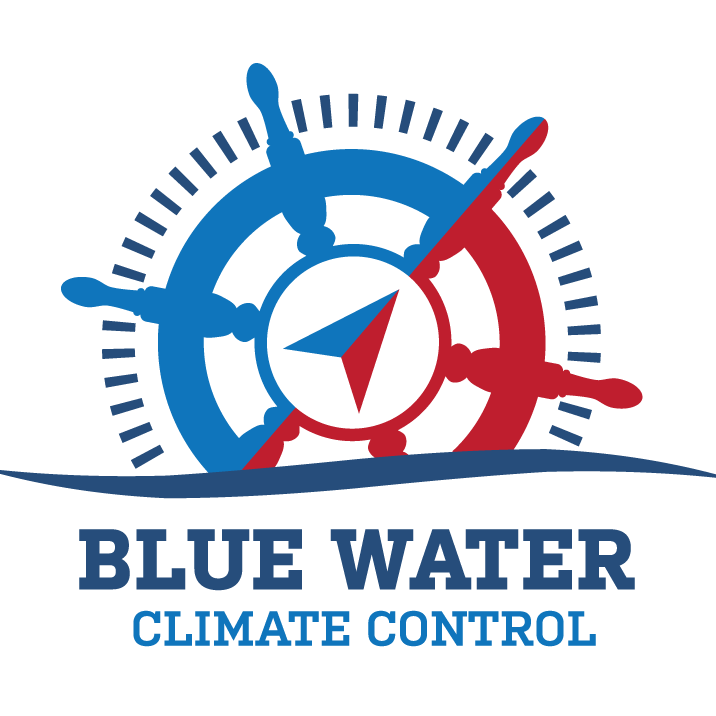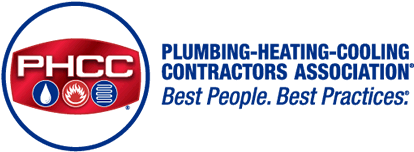How to become an HVAC Technician
HVAC Schools and Certifications
This article focuses primarily on HVAC school and certification programs available to men and women that live in East Tennessee. However, there are similar programs available throughout Tennessee and the United States.
In a previous article, Careers in HVAC, we discussed the various positions in the heating, ventilation, and air conditioning (HVAC) industry and the attributes needed for each. However, most people enter the field with the sole intent of becoming an HVAC technician. There are multiple paths to becoming an HVAC Technician. The conventional method is to attend a local trade school or community college, get the basic certifications, and hire on at an HVAC company as an entry-level technician or installer. However, with the proliferation of online classes, an in-person class may not be needed. Additionally, several companies and organizations offer apprenticeship programs that allow you to get paid while getting hands-on HVAC training.
Each state has different license and certification requirements for HVAC technicians. However, all technicians who handle refrigerants are required to get the Environmental Protection Agency (EPA) certification for handling refrigerants. There are several additional certifications that one can attain through industry competency exams from several certifying organizations. Throughout the industry, there are specialties where particular certifications may be needed. HVAC professionals who work on residential HVAC systems may have different certifications than those who work on commercial refrigeration systems or light commercial air conditioning.
Labor statistics continue to show In this article, we'll discuss some of the more common HVAC programs that are available in Knoxville, TN. We'll also give a brief overview of a few of the important HVAC certifications that may be needed.
High School Career Technical Education
Knox County Schools offer career training programs in the HVAC field
Knox County Schools offers Career and Technical Education (CTE). CTE is a national, state-led program that provides students with academic and technical skills in various career fields. In these programs, they receive the knowledge and training needed to succeed in future careers. CTE prepares these learners by teaching various workplace competencies in a hands-on context. CTE participants statistically graduate at a higher rate, about 90% which is 15 points higher than the average.
Students can begin to learn basic skills in the HVAC field of study as early as 9th grade. Students can complete an industry competency exam and be ready to work immediately after exiting high school. Halls High School has an HVAC program. Farragut and Karns have programs that include HVAC.
Tennessee College of Applied Technology (TCAT) - Knoxville
TCAT Knoxville provides an HVAC certificate program. It offers day and night classes for the convenience of people with full-time jobs. The course is taught at 2 different campuses, Knoxville and Strawberry Plains. Tuition and book fee information is available on the website. Our experience with the students and graduates of this program is very positive. The graduates seem to be prepared for and generally perform very well. The program excepts Tennessee Promise and Tennessee Reconnect which provides some Tennessee residents with financial aid. An overview of their program:
The HVAC-R program prepares students to work in the field of air conditioning and refrigeration. Students obtain critical skills to be able to troubleshoot, repair, and maintain residential and commercial refrigeration; air conditioning; heat pumps; indoor air quality equipment; and gas and electric furnaces. Students learn basic electricity, operation of electric motors, electrical controls, basic refrigeration, refrigeration cycle, and air distribution. Graduate HVAC technicians can install and braze refrigeration tubing, perform electrical diagnostics; install ductwork; repair light commercial equipment; recover and reclaim air conditioning and refrigeration refrigerants; and locate and repair refrigerant leaks.
Online HVAC Certification Program
A list and description of online HVAC training programs is available on this website: https://www.hvacclasses.org/online-training. Our experience with graduates of online training courses is mostly positive. HVAC technicians who completed the online course are usually very highly motivated. It takes a good work ethic and motivation to complete all the coursework. Technical skill is typically lacking early on from the lack of hands-on training. However, highly motivated online graduates usually overcome this very quickly.
TN Association of Plumbing Heating Cooling Contractors (PHCC)
Plumbing Heating Cooling Contractors Association offers a 4-yr apprenticeship program.
PHCC has a 4-year apprenticeship program for HVAC technicians. This program is certified by the U.S. Department of Labor, Bureau of Apprenticeship and Training, and approved by the Veterans Administration under the GI Bill. Classes are held one evening every two weeks. This allows the student to continue working full-time while building the skills needed to start a career in the heating and air conditioning industry.
EPA certification
EPA regulations 40 CFR Part 82, Subpart F, Section 608 require an HVAC technician that maintains, services, repairs or disposes of equipment that could release refrigerants into the atmosphere to be certified. They must pass an EPA-approved test to earn the 608 certification. A technician is defined as any individual who performs any of the following activities:
Attaching and detaching hoses and gauges to measure pressure
Any other activity that violates the integrity of the appliance
There are 4 types of certification:
Small appliances (Type I)
High or very high-pressure appliances, except small appliances (Type II)
Low-pressure appliances (Type III)
All types (Universal)
Test topics include:
Environmental Impacts
Clean Air Act and Montreal Protocol
Section 608 Regulations
Substitute refrigerant and oils
Refrigeration
Recover, recycle, reclaim
Recovery Techniques
Safety
Shipping
Most HVAC distribution stores are authorized EPA 608 test sites.
North American Technician Excellence (NATE)
North American Technician Excellence is a non-profit certification organization for heating, ventilation, air conditioning, and refrigeration technicians. NATE offers a series of tests to validate the professional competency of HVAC technicians. There are 4 steps to the NATE process:
Ready to work test (0-6 months): Entry-level exam for people just entering the HVACR field with little to no formal education or training.
HVAC Support Test (6-12 months): A fundamental exam that demonstrates increased heating and air conditioning knowledge and skills.
Core and Specialty Tests (2+ years)
Senior Level Efficiency Exam (5+ years)
NATE Certification is a great way to set yourself apart from other technicians
HVAC Excellence
HVAC Excellence offers accredited HVAC training programs
The HVAC Excellence program, established in 1994, serves as a prominent certification organization within the heating and air conditioning industry. It was created with the goal of enhancing technical competency and validating the education process for HVAC professionals. The program plays a crucial role in ensuring that industry standards are met and maintained by providing accreditation to HVAC programs and certifying individual technicians.
Key features of the HVAC Excellence program include:
Programmatic Accreditation: HVAC Excellence provides programmatic accreditation to HVAC programs, serving as a mark of excellence for the curriculum and overall program quality. This accreditation is an assurance of adherence to industry standards and the delivery of comprehensive education.
Progressive Certification Levels: HVAC Excellence offers a tiered certification system that allows technicians to demonstrate their proficiency at different levels. The certification process starts with EPA certification, validating a technician's ability to handle refrigerants safely. It then progresses to higher levels, reflecting increased expertise and experience.
Continued Education: The program emphasizes the importance of continuous learning for HVAC professionals. It provides avenues for technicians to enhance their skills and stay updated with industry advancements. Continued education is essential for maintaining certification and ensuring that technicians remain effective in their roles.
Instructor Certification: HVAC Excellence extends its certification beyond individual technicians to include instructor certification. This ensures that educators in HVAC programs are qualified and competent, contributing to the overall quality of education within the field.
Alignment with Industry Standards: The program aligns with industry standards and best practices, emphasizing the importance of delivering high-quality services and installations. Technicians certified by HVAC Excellence are expected to uphold these standards in their work.
Contributions to Continuous Improvement: HVAC Excellence actively contributes to the continuous improvement of technical competency in the HVAC industry. By monitoring and validating educational processes and certifications, the program aims to elevate the overall professionalism and skill level of HVAC technicians.
Overall, the HVAC Excellence program provides a comprehensive framework for certifying HVAC professionals, from entry-level technicians with EPA certification to experienced technicians and instructors. Its focus on education, industry standards, and continuous improvement positions it as a valuable resource for both individuals entering the HVAC field and those seeking to advance their careers within it.
Air Conditioning Contractors of America (ACCA)
Air Conditioning Contractors of America provides a great series of online training topics designed to improve the quality performance of technicians. They are built around ACCA standards and broken into 5-15 minute segments. This course also provides CEU and CEH credit for the NATE and HVAC Excellence continued training requirements. Here is a list of the courses provided:
A2L Refrigerant Training
Entry Level Technicians
EPA 608 Certification Prep Course
Technicians Field Practices for Quality Installation
Home Evaluation and Performance Improvement
Duct Design Basics
Duct Diagnostic and Repairs
Electricity Basics for the HVAC Contractor
Hydronics
HVAC Zoning
Commercial HVAC Design Basics
This is a small sampling of the organizations that provide training programs and certifications available to both aspiring and experienced HVAC technicians. The heating and air conditioning field continues to make technical advancements. HVAC professionals must be committed to continuous learning to stay up-to-date and continue to grow their careers.
Conclusion
In conclusion, becoming an HVAC technician involves a range of educational paths and certifications to ensure competency in a dynamic and ever-evolving industry. The traditional route through local trade schools or community colleges remains a viable option, but online classes and apprenticeship programs are increasingly accessible alternatives. The diversity of certifications available, such as the Environmental Protection Agency (EPA) certification, reflects the specialized nature of HVAC work, with different requirements for residential and commercial systems.
High school Career Technical Education programs play a crucial role in preparing students early on, with hands-on training and industry competency exams offered as part of the curriculum. Institutions like the Tennessee College of Applied Technology (TCAT) provide comprehensive HVAC certificate programs, combining theoretical knowledge with practical skills and flexibility for working professionals.
Online HVAC certification programs offer a convenient option for motivated individuals, although hands-on experience may initially be lacking. Organizations like the Tennessee Association of Plumbing Heating Cooling Contractors (PHCC) and their apprenticeship program, certified by the U.S. Department of Labor, offer a structured pathway for those seeking a career change while working full-time.
EPA certification, categorized into four types, is a regulatory requirement for technicians handling refrigerants. Beyond this, organizations like North American Technician Excellence (NATE) and HVAC Excellence offer progressive certification levels, providing a clear career advancement path. The Air Conditioning Contractors of America (ACCA) contributes to ongoing professional development through online training courses, ensuring technicians stay current with industry standards.
In a field characterized by constant technological advancements, HVAC professionals must commit to continuous learning. The multitude of training programs and certifications available caters to both aspiring and experienced technicians, emphasizing the importance of staying updated to foster personal and career growth. As the demand for skilled HVAC technicians continues to rise, individuals equipped with the right education and certifications will find themselves well-positioned for success in this rewarding industry.




